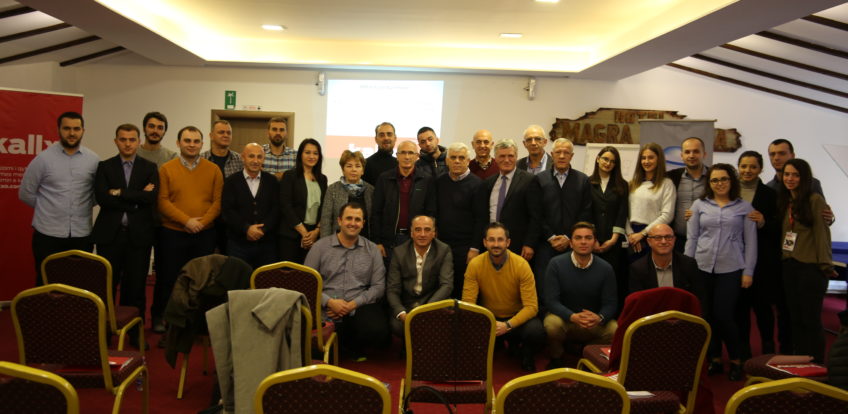“Internews Kosova” organizes a training seminar for Chief Prosecutors, Prosecutors and Communication Officials
Internews Kosova, in cooperation with UNDP, held a three-day training for the project “SAEK II- Support to Anti-Corruption Efforts in Kosovo” in Boge, Rugove on November 23-25 about the role of the Prosecution in dealing with public relations by using the media.
The training brought together chief prosecutors, prosecutors and other public communication officials within the Basic Prosecution of Kosovo from different municipalities such as Prishtina, Peja, Gjakova, Mitrovica, Prizren, Gjilan, etc., as well as senior officials from those municipalities.
One of the key speakers was Faik Ispahiu, the director of Internews Kosova, whose sessions focused on topics such as “How to organize a public speaking and how to prepare a speech,” “Press Conference Simulation” and “How to give relevant information.”
On the second day of the training, another speaker from Internews Kosova who spoke at the training was Labinot Leposhtica from the Legal Office, who presented about “Fake News and how to avoid it” followed by Kreshnik Gashi, the editor in chief of KALLXO.com, and Granit Mavriqi, the social media manager of Internews Kosova, who spoke about “Safe use of social media by officials.”
The training was followed by an open discussion hosted by Kreshnik Gashi with the guest speaker Gentiana Begolli, director of the Kosovo Journalists Association, AJK, who discussed media relations with the Prosecution and their cooperation.
On the last day of the training, Kreshnik Gashi gave a presentation on “The use of social media,” followed by an open discussion with the participants and other trainees.
The overall focus of the training was the cooperation of the Prosecution with the public and the best way of using media for professional public relations within the Prosecution.
As mentioned above, this training was organized within the framework of the project SAEK II supported by UNDP, a project with an innovative approach towards anti-corruption, its main aim being to strengthen institutional transparency, accountability, and integrity, with a focus on technological tools, access to information, and open participation in decision-making processes.

